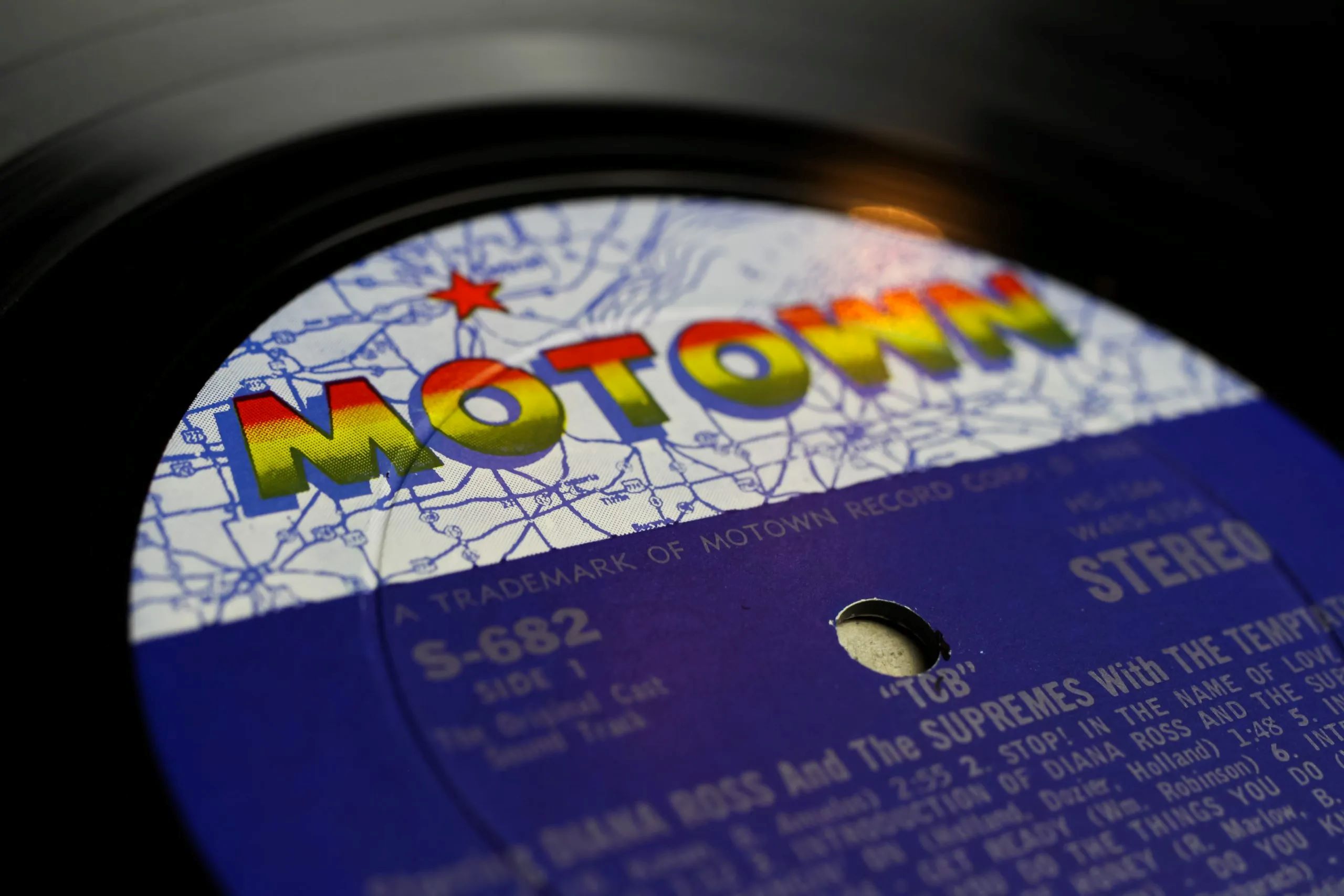Home>Production & Technology>Record Label>How To Become A Record Label A&R


Record Label
How To Become A Record Label A&R
Published: January 24, 2024
Learn how to become a successful record label A&R and discover insider tips for finding talent and building a thriving music career with this comprehensive guide.
(Many of the links in this article redirect to a specific reviewed product. Your purchase of these products through affiliate links helps to generate commission for AudioLover.com, at no extra cost. Learn more)
Table of Contents
- Introduction
- Understanding the Role of an A&R in a Record Label
- Developing Skills and Knowledge for A&R
- Building a Strong Network in the Music Industry
- Discovering and Identifying Talent
- Evaluating Artists and Their Potential
- Negotiating Contracts and Deals
- Supporting and Guiding Artists in their Career
- Promoting and Marketing Artists and Their Music
- Adapting and Evolving in the Changing Music Industry
- Conclusion
Introduction
The music industry is an ever-evolving landscape, filled with creativity, talent, and opportunity. At the heart of this industry are record labels, which play a crucial role in discovering, nurturing, and promoting artists. Behind the scenes, there are key professionals who act as the driving force of record labels, and one of these integral roles is that of an A&R (Artists and Repertoire) representative.
Being an A&R in a record label is both a challenging and rewarding position. A&R professionals are responsible for finding exceptional talent, guiding artists in their careers, nurturing their creative development, and ultimately shaping the label’s roster. They serve as the bridge between the artists and the label, ensuring that the right music reaches the right audience.
If you have a passion for music, a keen ear for talent, and a desire to be a part of the industry, becoming an A&R in a record label might be the perfect career path for you. In this article, we will explore the world of A&R and provide insights into what it takes to excel in this role.
We will discuss the skills and knowledge required to succeed as an A&R representative, the importance of building a strong network within the music industry, and the art of discovering and identifying talented artists. Additionally, we will delve into the process of evaluating artists, negotiating contracts, and supporting artists as they navigate their careers. We will also touch on the crucial role A&R professionals play in promoting and marketing artists and adapting to the changing landscape of the music industry.
Whether you’re a music enthusiast aspiring to work in the industry or an artist looking to understand the A&R process better, this article will provide you with valuable insights into the world of record label A&R and the integral role it plays in the success of both artists and labels.
Understanding the Role of an A&R in a Record Label
When it comes to the success of a record label, the role of an A&R representative is paramount. A&R stands for Artists and Repertoire, and these individuals are responsible for scouting and signing new talent, as well as guiding the artistic development of the artists on the label’s roster.
A&R professionals act as the gatekeepers of the label, using their keen musical instincts and industry knowledge to discover artists who have the potential to make an impact in the music industry. They are on the lookout for artists who possess exceptional talent, unique voices, and a sound that resonates with audiences.
Once an A&R representative identifies a promising artist or band, they work closely with them to bring out the best in their creativity. This involves assisting with the songwriting process, offering feedback and guidance, and helping to shape the overall sound and direction of the artist’s music. A&R representatives are responsible for ensuring that the artists on their roster produce high-quality music that aligns with the label’s brand and resonates with the target audience.
Another important aspect of the A&R role is scouting for potential hits. A&R representatives focus not only on discovering new talent but also on identifying songs that have the potential to become chart-toppers. They are tuned into current music trends, analyzing market demands, and seeking out songs that are likely to be commercially successful. Having a keen understanding of what appeals to the masses is crucial in ensuring the label’s success.
Furthermore, A&R representatives play a vital role in nurturing relationships between artists and other industry professionals. They collaborate with producers, songwriters, and other creatives to help artists develop their sound and craft. They also leverage their network within the music industry to connect artists with key stakeholders, such as publishers, managers, and booking agents, who can contribute to their success.
Overall, the role of an A&R representative extends beyond just finding talent. It involves a deep understanding of the artist’s vision, the ability to identify potential hits, and the skills to guide and support artists in their artistic journey. A&R professionals play a crucial role in shaping the direction of a record label and ensuring its long-term success.
Developing Skills and Knowledge for A&R
Being an A&R representative requires a unique set of skills and a deep understanding of the music industry. To excel in this role, it is essential to develop and refine certain competencies that will enable you to effectively scout, evaluate, and guide talented artists. Here are some key skills and knowledge areas that are crucial for aspiring A&R professionals:
- Musical Knowledge: A deep love and understanding of music across different genres is essential. Stay updated with current trends, explore new artists, and expand your knowledge of diverse musical styles. This will enable you to recognize talent and identify market potentials.
- A&R Strategies: Familiarize yourself with successful A&R strategies used by industry professionals. Study case studies, attend workshops, and learn about the experiences of established A&R representatives. This knowledge will help you develop effective techniques for scouting and signing artists.
- Networking and Relationship Building: Building connections within the music industry is crucial for success as an A&R representative. Attend industry events, join professional organizations, and reach out to industry professionals. Cultivate relationships with artists, managers, producers, and other A&R representatives to expand your network and gain valuable insights.
- Business Acumen: Understanding the business side of the music industry is vital. Familiarize yourself with concepts such as publishing, royalties, copyright law, and contract negotiation. This knowledge will enable you to navigate the legal and financial aspects of the A&R role effectively.
- A&R Toolbox: Develop a set of tools and resources to help you in your A&R activities. This includes music streaming platforms, industry databases, and analytics tools. Utilize these resources to research, discover, and evaluate talent effectively.
- Communication and Interpersonal Skills: As an A&R representative, you will be working closely with artists, producers, and other industry professionals. Strong communication skills, including active listening and effective verbal and written communication, are crucial for building rapport and conveying feedback and guidance.
- Creative Vision: A&R professionals need to have a clear vision for the label and its artists. Develop your ability to identify unique talent, envision an artist’s sonic identity, and understand how to differentiate them in a competitive market.
Developing these skills and knowledge areas will lay a strong foundation for your career as an A&R representative. Embrace continuous learning and stay adaptable to the ever-changing music industry landscape. Combine your passion for music with these skills, and you’ll be well on your way to succeeding in the competitive field of A&R.
Building a Strong Network in the Music Industry
In the music industry, building a strong network is essential for success as an A&R representative. Networking allows you to establish connections, gain industry insights, and create opportunities for collaboration. Here are some key strategies to help you build a strong network in the music industry:
- Attend Industry Events: Attend music conferences, festivals, and industry showcases. These events bring together artists, industry professionals, and music enthusiasts, providing valuable networking opportunities. Engage in conversations, exchange contact information, and follow up with individuals you meet.
- Join Professional Organizations: Join industry-specific organizations and associations such as the A2IM (American Association of Independent Music) or NARIP (National Association of Record Industry Professionals). These organizations host events, seminars, and workshops where you can meet like-minded individuals and gain industry insights.
- Connect on Social Media: Utilize social media platforms like LinkedIn, Twitter, and Instagram to connect with artists, managers, producers, and other industry professionals. Engage in conversations, share industry news, and showcase your knowledge and expertise in the field.
- Seek Mentorship: Find experienced professionals in the music industry who can serve as mentors. Reach out to industry veterans, attend masterclasses, or participate in mentorship programs. Mentors can provide guidance, share their experiences, and introduce you to valuable contacts.
- Collaborate with Artists and Producers: Actively seek collaborations with artists and producers. Offer your services as an A&R representative, provide feedback, and help them refine their sound. Collaborative projects can not only enhance your networking opportunities but also showcase your ability to nurture and develop talent.
- Attend Music Industry Workshops: Participate in workshops and seminars conducted by industry professionals. These events provide valuable insights into various aspects of the music industry and create opportunities for networking with both experts and aspiring professionals.
- Utilize Online Platforms: Explore online platforms that connect artists, producers, and industry professionals. Platforms like Soundcloud, Bandcamp, and Spotify offer opportunities to discover emerging artists and connect with their teams.
- Build Genuine Relationships: Networking is not just about collecting business cards or adding connections on social media. Focus on building genuine relationships. Take the time to listen to others, offer support, and provide value. Building trust and rapport will help you establish long-lasting connections.
Remember that networking is an ongoing process. Continuously nurture your relationships, stay active in the music community, and always be open to new opportunities. Building a strong network will not only enhance your career as an A&R representative but also contribute to your personal growth within the music industry.
Discovering and Identifying Talent
One of the most crucial responsibilities of an A&R representative is to discover and identify talented artists who have the potential to succeed in the music industry. This ability to spot exceptional talent is what sets A&R professionals apart. Here are some strategies to help you discover and identify talent:
- Attend Live Performances: Regularly attend live performances and showcases, whether it’s at local venues, music festivals, or industry events. Seeing artists perform live allows you to experience their stage presence, charisma, and connection with the audience firsthand.
- Scour Online Platforms: Explore online platforms such as Soundcloud, Bandcamp, YouTube, and social media to discover emerging artists. Many talented musicians use these platforms to share their work, gain exposure, and connect with fans. Keep an eye out for artists generating buzz or those with a unique sound.
- Pay Attention to Recommendations: Stay open to recommendations from trusted industry professionals, fellow A&R representatives, managers, and artists themselves. They may have valuable insights and referrals to talented individuals who are worth exploring.
- Engage in Music Communities: Join music communities, forums, and online groups where artists and industry professionals interact. Engaging in conversations within these communities will allow you to discover hidden gems and stay updated on emerging trends.
- Follow Industry Blogs and Publications: Stay informed by reading industry blogs, publications, and online magazines that feature up-and-coming artists. These sources often showcase talented musicians who are gaining attention and making waves within the industry.
- Seek Out Collaborations: Actively seek collaborations with talented artists and producers. By working together on projects, you can uncover hidden talent and evaluate their potential for success. Collaborating also allows you to develop relationships and gauge an artist’s work ethic and professionalism.
- Stay Open to Different Genres: Remember that talent can be found across various genres. Be open-minded and explore different styles of music. Artists who push boundaries and have a unique approach to their craft may provide exciting new opportunities for your label.
- Trust Your Instincts: Developing a keen intuition for talent takes time and experience. Trust your instincts and follow your gut feelings when evaluating artists. Look for that spark of originality and authenticity that sets them apart from the crowd.
Keep in mind that discovering talent is not solely based on their music. Consider an artist’s work ethic, stage presence, live performance abilities, and overall market potential. Ultimately, it’s about finding artists who have the talent, drive, and potential for longevity within the music industry.
As an A&R representative, your ability to discover and identify talent is crucial in shaping the future success of your label. Stay proactive, embrace new avenues of exploration, and keep an ear to the ground for the next big thing in music.
Evaluating Artists and Their Potential
As an A&R representative, one of your key responsibilities is evaluating artists and assessing their potential for success in the music industry. This process involves a careful analysis of various factors to determine whether an artist aligns with the label’s vision and has the potential for long-term growth. Here are some important aspects to consider when evaluating artists:
- Musical Talent: Assess the artist’s musical abilities, including their vocal range, instrumental proficiency, songwriting skills, and overall artistry. Look for unique qualities that set them apart and indicate potential for growth and development.
- Marketability: Consider the artist’s market appeal and commercial viability. Evaluate whether their sound, image, and style have the potential to resonate with a large audience. Assess their potential to attract media attention, secure radio airplay, and generate streaming and sales numbers.
- Originality: Look for artists who bring something fresh and innovative to the table. Evaluate their ability to push boundaries, take risks, and carve out a unique niche within their genre. Originality will help an artist stand out in a crowded market.
- Stage Presence: Assess the artist’s stage presence, charisma, and ability to connect with an audience. A captivating live performance can greatly enhance an artist’s potential for success, as it contributes to their fan base and touring opportunities.
- Work Ethic and Professionalism: Consider an artist’s work ethic, determination, and professionalism. Evaluate their willingness to collaborate, adapt, and put in the necessary effort to succeed. Look for indications of consistency, discipline, and a strong work ethic.
- Brand Potential: Evaluate an artist’s brand potential by assessing their overall image, social media presence, and marketing savvy. Determine if they have the ability to build a loyal fan base, engage with their audience, and create a distinct brand identity.
- Lyrical Content and Storytelling: Explore an artist’s lyrical content and storytelling abilities. Evaluate their ability to convey emotion, connect with listeners on a deeper level, and craft impactful messages. Strong storytelling can often resonate with a broader audience.
- Collaborative Potential: Assess an artist’s collaborative potential by evaluating their ability to work with producers, songwriters, and other creatives. Look for artists who are open to collaboration and have the ability to elevate their music through teamwork.
Remember that evaluating artists and their potential is ultimately subjective to some extent. Trust your instincts and rely on your industry knowledge and experience. It is also important to consider the label’s long-term goals, target audience, and overall brand identity when assessing an artist’s potential fit within the label’s roster.
Evaluating artists requires a combination of analytical thinking, creative intuition, and knowledge of the industry’s current trends and demands. Stay open-minded, continuously seek new talent, and consistently refine your evaluation process to discover artists with the greatest potential for success.
Negotiating Contracts and Deals
Negotiating contracts and deals is a critical aspect of the A&R representative’s role within a record label. It is during this process that the terms and conditions for artist signings, album releases, publishing agreements, and other important arrangements are determined. Here are some key considerations and strategies when negotiating contracts and deals:
- Know Your Artist: Before entering into negotiations, thoroughly understand the artist’s goals, expectations, and aspirations. This knowledge will enable you to negotiate in their best interest and build a mutually beneficial agreement.
- Research and Preparation: Conduct thorough research on industry standards, market trends, and successful precedents in similar deals. This will provide you with a solid foundation when presenting and defending your negotiation positions.
- Identify Key Points: Clearly identify the key points and terms that are of importance to both parties. These may include royalty rates, album release schedules, marketing budgets, creative control, and ownership rights. Pay attention to any potential deal breakers or non-negotiable items.
- Communicate Effectively: Develop excellent communication skills to clearly articulate your position, explain the benefits of your proposal, and address any concerns or objections. Active listening is also essential to understand the artist’s needs and concerns fully.
- Collaborate and Compromise: Negotiation is about finding a middle ground where both parties feel satisfied. Be open to compromises and creative solutions that address the goals and concerns of both the label and the artist. Collaborate to reach a mutually beneficial agreement.
- Legal Expertise: Seek legal guidance to ensure that the contracts and deals are legally sound, protect the interests of all involved parties, and comply with industry regulations. Legal counsel can provide valuable advice and help you navigate complex legal language.
- Document Everything: Ensure that all agreed-upon terms and conditions are documented in a clear and comprehensive contract. Proper documentation is essential to avoid misunderstandings and legal disputes in the future.
- Maintain Professional Relationships: Remember that negotiation is not about winning or defeating the other party—it is about establishing strong, professional relationships. Maintaining a respectful and cooperative approach will contribute to long-term partnerships and future collaborations.
- Stay Updated: As the music industry evolves, so do contract negotiations. Stay updated on industry trends, emerging revenue streams, and changes in copyright laws. This will help you adapt and negotiate deals that account for new opportunities and challenges.
Effective negotiation skills are crucial in securing favorable deals for the label and the artist. By understanding the needs and concerns of both parties, doing thorough research, communicating effectively, and seeking legal guidance, you can navigate the negotiation process with confidence.
Remember, negotiation is an ongoing process. Maintain open lines of communication, regularly review and renegotiate contracts as necessary, and strive for win-win outcomes that foster long-term success for both the artist and the record label.
Supporting and Guiding Artists in their Career
As an A&R representative, supporting and guiding artists in their career is a crucial aspect of your role. Your role extends beyond scouting and signing talent; it involves nurturing the artistic development of the artists on your label’s roster. Here are some key ways to support and guide artists in their career:
- Building Trust and Rapport: Developing a strong relationship based on trust and mutual respect is essential. Take the time to understand the artist’s goals, aspirations, and creative vision. Create an environment where they feel comfortable sharing their ideas and concerns.
- Providing Mentorship and Guidance: Act as a mentor and provide guidance to help artists navigate the complexities of the music industry. Share your knowledge and experiences, offer constructive feedback, and provide support throughout their career journey.
- Assisting with Artistic Development: Help artists refine their sound, develop their songwriting skills, and hone their stage presence. Collaborate with them on selecting material, arranging songs, and exploring new creative directions. Encourage them to push musical boundaries and evolve their sound.
- Connecting Artists with Industry Professionals: Leverage your network and industry connections to introduce artists to producers, songwriters, and other key professionals who can contribute to their development. Facilitate collaborations and provide opportunities for them to grow their network.
- Offering Emotional Support: Being an artist can be emotionally challenging. Offer a supportive ear, understand the artist’s concerns and anxieties, and provide encouragement during both the ups and downs of their career. Create a safe space for them to express themselves.
- Assisting in Building a Team: Help artists build a team of professionals that can support their career, including managers, booking agents, publicists, and lawyers. Assist in the selection process, offer advice on contract negotiations, and ensure the team’s objectives align with the artist’s vision.
- Facilitating Professional Development Opportunities: Identify opportunities for artists to enhance their skills and exposure. This may include workshops, showcases, industry events, and collaborations with other established artists. Encourage them to take advantage of these opportunities to grow as artists.
- Being a Champion and Advocate: Act as an advocate for your artists within the label and the industry. Promote their music, secure promotional opportunities, and actively seek out opportunities for them to gain exposure and expand their fan base.
- Keeping Up with Industry Trends: Stay informed about industry trends, emerging technologies, and changes in the music landscape. This knowledge will enable you to guide your artists in adapting to new opportunities and challenges.
Remember, each artist is unique, with their own strengths, weaknesses, and aspirations. Tailor your support and guidance to meet their specific needs. By providing unwavering support, guidance, and resources, you can help artists navigate their career journey and maximize their potential for success.
Promoting and Marketing Artists and Their Music
One of the key responsibilities of an A&R representative is to promote and market artists and their music. Effective promotion and marketing strategies are crucial to gaining exposure, building a fan base, and increasing the artist’s chances of success. Here are some important considerations when it comes to promoting and marketing artists:
- Create a Marketing Plan: Develop a comprehensive marketing plan that outlines the objectives, target audience, and strategies for promoting the artist. This plan should include online and offline promotional activities, as well as a timeline and budget.
- Build an Online Presence: Establish a strong online presence for the artist through a website, social media platforms, and digital streaming services. Regularly update these channels with engaging content, including music releases, behind-the-scenes footage, and personal stories that connect with fans.
- Utilize Social Media: Leverage the power of social media to connect with fans and amplify the artist’s reach. Engage with followers, share updates, and encourage fan-generated content to create a sense of community around the artist’s music.
- Develop Compelling Visuals: Invest in high-quality visuals, including professional photoshoots, album artwork, and music videos. Visuals play a crucial role in capturing the attention of audiences and conveying the artist’s aesthetic and brand identity.
- Secure Media Coverage: Pitch the artist to music blogs, online publications, radio stations, and traditional media outlets. Craft compelling press releases, exclusive interviews, and captivating story angles to increase media coverage and generate buzz.
- Collaborate with Influencers: Identify influential individuals within the music industry or related fields and explore opportunities for collaboration. This may include featuring the artist’s music in curated playlists or partnering with well-known influencers for promotional campaigns.
- Organize Live Performances: Coordinate live performances, both headline shows and supporting slots for established artists. Engaging audiences with energetic and captivating live performances is a powerful way to promote the artist’s music and connect with fans.
- Engage in Strategic Partnerships: Seek out strategic partnerships with brands, organizations, and platforms that align with the artist’s values and target audience. Collaborative campaigns and endorsements can expand the artist’s reach and expose them to new audiences.
- Utilize Music Industry Events: Take advantage of music industry events like conferences, trade shows, and award shows. These events provide valuable opportunities to network, showcase the artist’s talent, and generate industry buzz.
- Track and Analyze Results: Regularly monitor and analyze the effectiveness of promotional and marketing efforts. Utilize analytics tools to track online engagement, streaming numbers, social media reach, and audience demographics. This data will help inform future marketing strategies.
Effective promotion and marketing require creativity, adaptability, and a deep understanding of the target audience. Tailor strategies to the artist’s unique sound, aesthetic, and brand. Stay up-to-date with evolving technologies and trends in the music industry to maximize the artist’s exposure and reach.
By implementing a well-rounded marketing approach and utilizing a mix of traditional and digital channels, you can effectively promote and market artists, helping them gain visibility and connect with a broader audience.
Adapting and Evolving in the Changing Music Industry
The music industry is in a constant state of evolution, driven by advancements in technology, changes in consumer behavior, and emerging trends. As an A&R representative, the ability to adapt and evolve is essential to staying relevant and ensuring the continued success of your artists and the record label. Here are some key considerations for adapting and evolving in the changing music industry:
- Stay on Top of Technological Advances: Embrace new technologies and platforms that are shaping the music industry. Stay updated on streaming services, digital marketing tools, data analytics, and emerging distribution models. Utilize these tools to reach and engage with a wider audience.
- Embrace Streaming and Digital Platforms: Streaming platforms are now the primary mode of music consumption. Understand the dynamics of streaming, playlists, and user-generated content. Collaborate with streaming services to optimize artist exposure and discoverability.
- Explore Alternative Revenue Streams: Traditional revenue streams like album sales have dwindled. Encourage artists to explore alternative revenue sources such as sync licensing, merchandise, brand partnerships, and live performances. Diversifying income streams can provide stability and growth opportunities.
- Harness the Power of Data: Leverage data analytics to gain insights into audience preferences, streaming patterns, and consumer behavior. Utilize this information to make informed decisions in areas such as marketing, touring, and creative direction.
- Adapt Marketing Strategies: Shift marketing strategies to digital and social media platforms that have become primary promotional channels. Engage with fans directly through social media and explore innovative marketing tactics to cut through the noise and capture attention.
- Cultivate a Global Perspective: The digital age has made music accessible worldwide. Keep a global perspective in mind when scouting talent and developing marketing strategies. Embrace international collaborations and explore opportunities in diverse markets to tap into the global music community.
- Foster Innovation and Creativity: Encourage artists to experiment and be open to new sounds, genres, and collaborations. Support them in embracing innovation and finding unique ways to connect with their audience. Embrace creativity in all aspects of the music-making process.
- Educate Yourself Continuously: The music industry is ever-changing, and staying ahead requires continuous education. Attend industry conferences, workshops, and webinars. Stay informed about market trends, legal developments, and emerging business models to adapt your strategies accordingly.
- Nurture Agile and Flexible Mindset: Foster a culture of adaptability within the record label. Encourage team members to embrace change, take calculated risks, and be open to new ideas. Develop an environment that values innovation and rewards creative problem-solving.
- Build Strategic Partnerships: Collaborate with other industry professionals, influencers, and brands to stay connected and informed within the industry. Seek out partnerships that can provide support, resources, and opportunities for artists and the label.
The ability to adapt and evolve is crucial in navigating the rapidly changing music industry. By staying informed, embracing technology, fostering creativity, and cultivating a flexible mindset, you can position yourself and your artists for long-term success in this dynamic landscape.
Conclusion
Becoming an A&R representative in a record label is an exciting and fulfilling career choice for those passionate about music and dedicated to supporting artists’ success. Throughout this article, we have explored the multifaceted role of an A&R representative and the essential skills and knowledge required to excel in this industry.
From understanding the role of an A&R in a record label to developing expertise in scouting and identifying talent, negotiating contracts, and supporting artists in their careers, it is clear that A&R representatives play a pivotal role in shaping the success of both artists and labels.
Building a strong network within the music industry is crucial for discovering new talent, fostering collaborations, and staying up-to-date with the ever-evolving trends and opportunities. By developing relationships with industry professionals and engaging in music communities, A&R representatives expand their reach and gain valuable insights.
Discovering and identifying talent requires a combination of musical knowledge, market awareness, and intuition. A&R representatives must have a keen ear for exceptional talent and a knack for recognizing artists with the potential to make a lasting impact in the industry.
Negotiating contracts and deals is a skill that ensures artists’ interests are protected while aligning with the goals and vision of the label. Effective negotiation techniques, along with legal expertise, contribute to fostering successful partnerships and mutually beneficial agreements.
Supporting and guiding artists through their career journey is an integral part of the A&R role. By offering mentorship, assisting with artistic development, connecting artists with industry professionals, and providing emotional support, A&R representatives play a critical role in nurturing artists’ growth and success.
Promoting and marketing artists effectively is essential for gaining exposure, building a fan base, and creating opportunities for success. Embracing digital platforms, utilizing social media, securing media coverage, and organizing live performances are key components of successful promotion and marketing strategies.
Lastly, in a changing music industry, A&R representatives must remain adaptable and open to new technologies, revenue streams, and marketing strategies. By staying informed, fostering innovation, and building strategic partnerships, A&R representatives position themselves and their artists for continued success.
In conclusion, being an A&R representative is a dynamic and challenging role that requires a deep passion for music, a commitment to artist development, and the ability to navigate the ever-changing music industry. By continually refining your skills, embracing new opportunities, and supporting artists’ growth, you can make a significant impact in shaping the future of the music industry.











